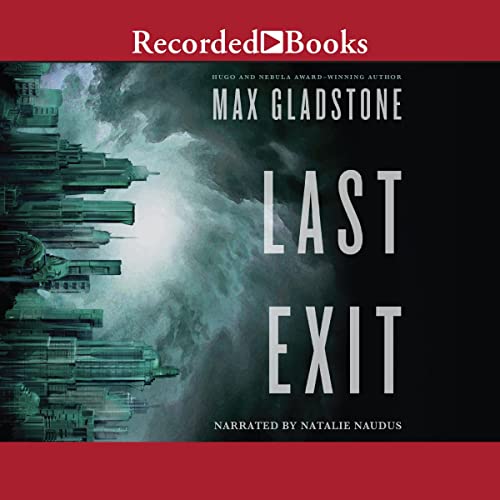 Last Exit by Max Gladstone
Last Exit by Max Gladstone Narrator: Natalie Naudus
Format: audiobook
Source: supplied by publisher via NetGalley
Formats available: paperback, ebook, audiobook
Genres: fantasy, horror, urban fantasy
Pages: 400
Length: 21 hours and 3 minutes
Published by Tor Books on March 8, 2022
Purchasing Info: Author's Website, Publisher's Website, Amazon, Barnes & Noble, Kobo, Bookshop.org, Better World Books
Goodreads
Ten years ago, Zelda led a band of merry adventurers whose knacks let them travel to alternate realities and battle the black rot that threatened to unmake each world. Zelda was the warrior; Ish could locate people anywhere; Ramon always knew what path to take; Sarah could turn catastrophe aside. Keeping them all connected: Sal, Zelda’s lover and the group's heart.
Until their final, failed mission, when Sal was lost. When they all fell apart.
Ten years on, Ish, Ramon, and Sarah are happy and successful. Zelda is alone, always traveling, destroying rot throughout the US.
When it boils through the crack in the Liberty Bell, the rot gives Zelda proof that Sal is alive, trapped somewhere in the alts.
Zelda’s getting the band back together—plus Sal’s young cousin June, who has a knack none of them have ever seen before.
As relationships rekindle, the friends begin to believe they can find Sal and heal all the worlds. It’s not going to be easy, but they’ve faced worse before.
But things have changed, out there in the alts. And in everyone's hearts.
Fresh from winning the Hugo and Nebula Awards, Max Gladstone weaves elements of American myth--the muscle car, the open road, the white-hatted cowboy--into a deeply emotional tale where his characters must find their own truths if they are to survive.
My Review:
There was a serpent gnawing at the roots of the world. Zelda, June, Sarah, Ramon and Ish go on the road trying to do something to slow it down or keep it at bay or just stop it. If they can. Because they believe they must. Because they tried before – and they failed.
But, and it’s a very big but that fills the sky with thunder and lightning and cracks the ground all around them every place they go – is that “last exit” they’re searching for the last exit to get OFF the road that is heading TO hell, or is it the last exit to get ON that road. Differences may be crucial – and nearly impossible to judge when the critical moment arrives with the ring of boot heels on cracked and broken pavement.
Ten years ago, five college students (Sal, Zelda, Sarah, Ramon and Ish) who all felt like outsiders at their preppy, pretentious Ivy League school (cough Yale cough) discovered that they each had a ‘knack’ for exploring the multiverse. So, they decided to go on an adventure instead of heading out into the real world of adulting, jobs and families.
They wanted to make the world better – or find a world that was better – rather than settle for and in the world they had. So they went on ‘The Road’ and explored all the alternate worlds they could find within the reach of their “souped up” car.
They found adventure all right. And they were all young enough to shrug off the danger they encountered and the damage they took escaping it. But what they did not find was anyplace better. They didn’t even find anywhere that was all that good.
They helped where they could and escaped where they had to and generally had a good time together. But, and again it’s a very big but, all the worlds they found had given way to the same terrible applications of power and privilege and use and abuse that are dragging this world down. They found death cults and dictatorships and slavery and madness everywhere they went.
The multiverse was rotting from within, because there was a serpent gnawing at the roots of the world.
So together they embarked upon a desperate journey to the Crossroads at the heart of all the multiverses, the place where there might be a chance to not just shore up the forces of not-too-bad in one alternate world, but in all the alternate worlds all at the same time.
They failed. And they lost the woman who was their heart and their soul. Sal fell through the cracks of the world. She was lost to the rot that was destroying not just the alts but their own world as well.
That could have been the end of their story. And it almost was. Without Sal, they fell apart. Individually and collectively. Sarah went to medical school and raised a family. Ish raised a tech empire. Ramon tried to destroy himself, tried to forget, and ended up back where he started.
And Zelda stayed on the road, sleepwalking through ten years of loneliness, doing her best to plug the holes in this world where the rot was creeping in.
Because it was all their fault – it was all her fault. She lost Sal, the woman she loved – and then everything fell apart. She feels duty-bound, obligated and guilt-ridden, to fix it.
It takes ten years, and a kick in the pants from Sal’s cousin June, for Zelda to finally acknowledge that the only way she can fix what she broke, what they broke, is going to require more than a little help from their friends.
If they’re willing to take one final ride on the road.
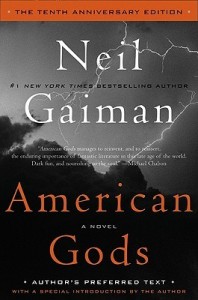 Escape Rating A-: In the end, Last Exit is awesome. But it takes one hell of a long and painful journey to reach that end. Because it starts with all of them not just apart, but in their own separate ways, falling apart. And it ends with all of their demons coming home to roost – and nearly destroying them – as they relive the past and do their damndest to push through to either some kind of future – or some kind of sacrifice to balance out the one they already made when they lost Sal.
Escape Rating A-: In the end, Last Exit is awesome. But it takes one hell of a long and painful journey to reach that end. Because it starts with all of them not just apart, but in their own separate ways, falling apart. And it ends with all of their demons coming home to roost – and nearly destroying them – as they relive the past and do their damndest to push through to either some kind of future – or some kind of sacrifice to balance out the one they already made when they lost Sal.
The reader – along with Zelda and Sal’s cousin June – starts out the story believing that it’s all about the journey. Or that it’s a quest to reach a specific destination that may or may not be Mount Doom. It’s only at the very, very bitter end that they – and the reader – figure out that it was about the perspective all along.
A lot of readers are going to see a resemblance to Stephen King’s Dark Tower series, but I haven’t read that so it wasn’t there for me. What I saw was a sharp comparison to American Gods by Neil Gaiman – both because it’s very much an “American Road Story”, even if most of the Americas are alts, but especially because of that sudden, sharp, shock at the end, where the reader has to re-think everything that came before.
I listened to Last Exit all the way through, and the narrator did a terrific job of differentiating the voices. There was a lyricism to the characters’ internal dialogs that she conveyed particularly well – it was easy to get caught up in each one’s internal thoughts and understand where they were coming from, even if the sheer overwhelming amount of angst most of them were going through was occasionally overwhelming – both for the characters and for the listener.
Part of what makes this a densely packed and difficult story and journey is that the main character and perspective is Zelda – who is just a hot mess of angst and guilt and regret. We understand why she blames herself for everything – whether anything is her fault or not – but there seems to be no comfort for her anywhere and you do spend a lot of the book wondering if she’s going to sacrifice herself because she just can’t bear it a minute longer.
The story feels a bit disjointed at points because the narrative is disjointed both because Zelda keeps telling and experiencing snippets of what happened before interwoven with what’s happening now and because the alts themselves are disjointed. It’s clear there’s some kind of organizing geography, but I just didn’t quite see it. To me, the alts all sounded like various aspects of the fractured future Earth in Horizon: Zero Dawn and I stopped worrying about what went where.
There were a lot of points where I seriously wondered where this was all going. Where it ended up wasn’t what I was initially expecting – at all. But it was one hell of a journey and I’m really glad I went, even if I needed a cocoa and a lie-down to recover from the sheer, chaotic wildness of the ride..

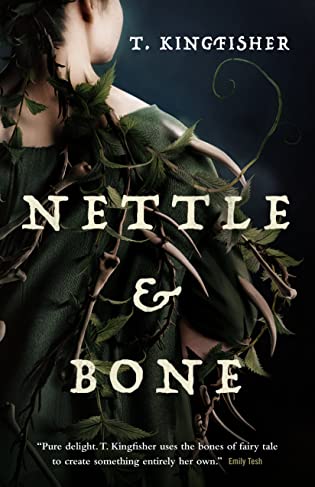 Nettle & Bone by
Nettle & Bone by 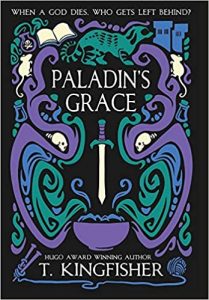 Which is another way that this is a story about fairness, privilege, and the actual powerlessness that afflicts people in positions of seeming power – at least if those people are female.
Which is another way that this is a story about fairness, privilege, and the actual powerlessness that afflicts people in positions of seeming power – at least if those people are female.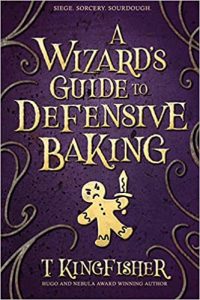 Escape Rating A+: I was looking for something by T. Kingfisher AKA Ursula Vernon to review as part of this Blogo-Birthday Celebration Week because so far I’ve loved everything of hers that I’ve read, especially
Escape Rating A+: I was looking for something by T. Kingfisher AKA Ursula Vernon to review as part of this Blogo-Birthday Celebration Week because so far I’ve loved everything of hers that I’ve read, especially  The Kaiju Preservation Society by
The Kaiju Preservation Society by  Escape Rating A-: The Kaiju Preservation Society reads like vintage Scalzi of the
Escape Rating A-: The Kaiju Preservation Society reads like vintage Scalzi of the 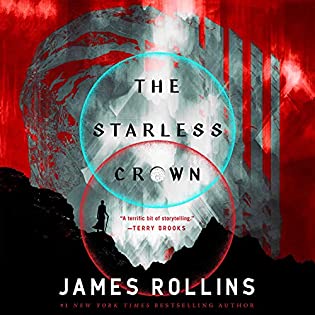 The Starless Crown (Moon Fall, #1) by
The Starless Crown (Moon Fall, #1) by 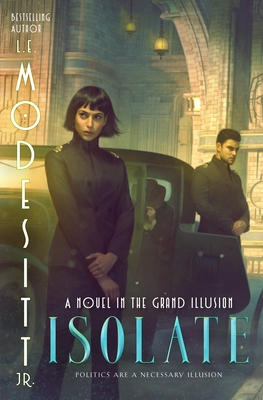 Isolate (The Grand Illusion #1) by
Isolate (The Grand Illusion #1) by 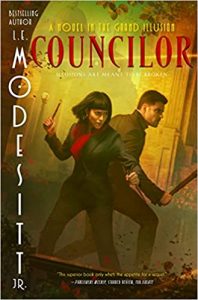 Instead, it ends up being the story of three people doing the best that they can to help their country in spite of everyone who tries to get in their way. In the process, they all rise above the place they expected to be, and that’s just the kind of story I love to sink into.
Instead, it ends up being the story of three people doing the best that they can to help their country in spite of everyone who tries to get in their way. In the process, they all rise above the place they expected to be, and that’s just the kind of story I love to sink into.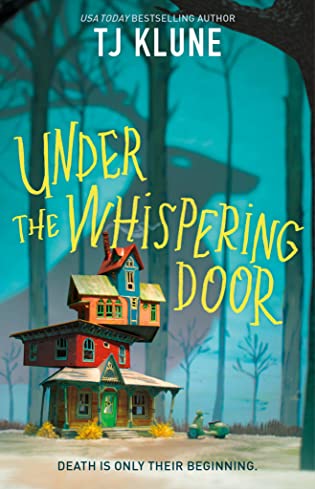 Under the Whispering Door by
Under the Whispering Door by 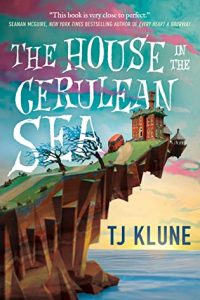 One final set of thoughts. This is being marketed as fantasy because of the author’s previous work in the genre, like the lovely
One final set of thoughts. This is being marketed as fantasy because of the author’s previous work in the genre, like the lovely 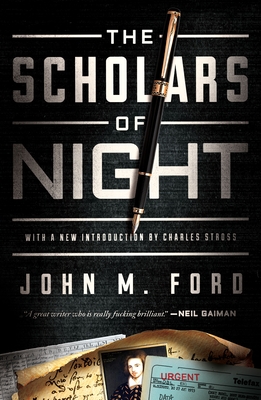 The Scholars of Night by
The Scholars of Night by 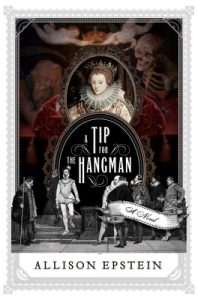 Escape Rating A: The story in The Scholars of Night is complex and convoluted and wonderful. No one trusts anyone else, no one is really on anyone else’s side, everyone is waiting for everyone else to betray them – with good reasons – and everyone is unreliable because no one is telling the truth about anything even when they think they know the truth.
Escape Rating A: The story in The Scholars of Night is complex and convoluted and wonderful. No one trusts anyone else, no one is really on anyone else’s side, everyone is waiting for everyone else to betray them – with good reasons – and everyone is unreliable because no one is telling the truth about anything even when they think they know the truth.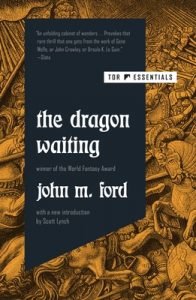 Reviewer’s Note: The story about how this book and the rest of John M. Ford’s work went so thoroughly out of print – with the exception of his Star Trek novelizations – and how they finally got back into print (and ebook for the first time!) is a bit of a puzzle story in and of itself.
Reviewer’s Note: The story about how this book and the rest of John M. Ford’s work went so thoroughly out of print – with the exception of his Star Trek novelizations – and how they finally got back into print (and ebook for the first time!) is a bit of a puzzle story in and of itself.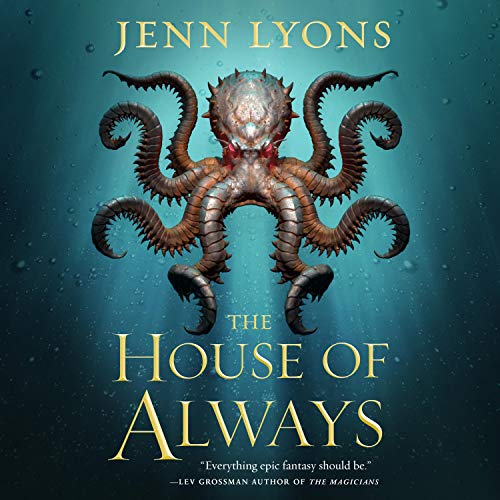 The House of Always (A Chorus of Dragons, #4) by
The House of Always (A Chorus of Dragons, #4) by 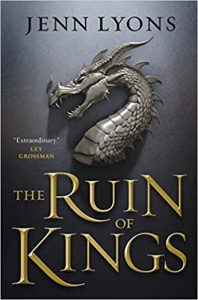 Escape Rating A: There is, as is ALWAYS true of this series, a lot to unpack in this entry. And just like all of the previous books in the series, you won’t care to unpack it or understand why it’s important to unpack if you haven’t read the previous books. Start with
Escape Rating A: There is, as is ALWAYS true of this series, a lot to unpack in this entry. And just like all of the previous books in the series, you won’t care to unpack it or understand why it’s important to unpack if you haven’t read the previous books. Start with 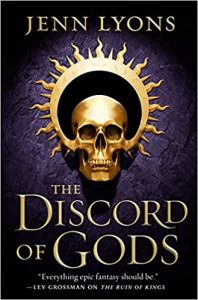 Both sides believe that Kihrin is just a pawn they’ve been playing with for cycles and millennia. He thinks he’s got them fooled, and that he’s playing them in order to save the people he loves – and everyone else – into the bargain.
Both sides believe that Kihrin is just a pawn they’ve been playing with for cycles and millennia. He thinks he’s got them fooled, and that he’s playing them in order to save the people he loves – and everyone else – into the bargain.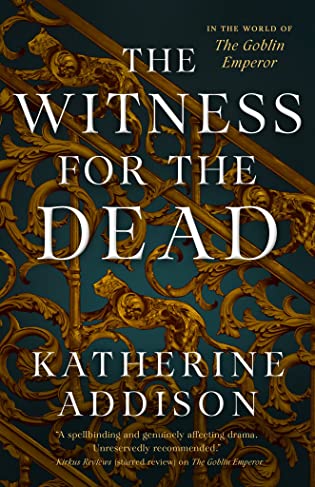 The Witness for the Dead (The Goblin Emperor, #2) by
The Witness for the Dead (The Goblin Emperor, #2) by 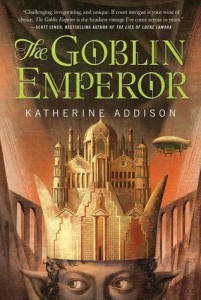 Escape Rating A+: Based on the blurb, this wasn’t exactly what I expected. And it doesn’t matter because I absolutely loved it.
Escape Rating A+: Based on the blurb, this wasn’t exactly what I expected. And it doesn’t matter because I absolutely loved it.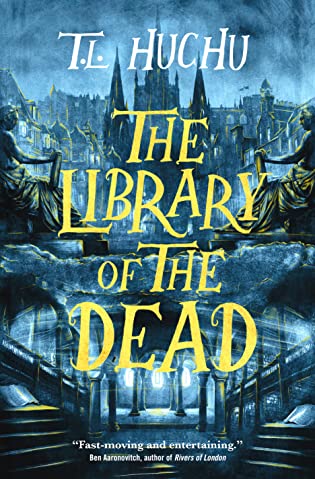 The Library of the Dead (Edinburgh Nights, #1) by
The Library of the Dead (Edinburgh Nights, #1) by 